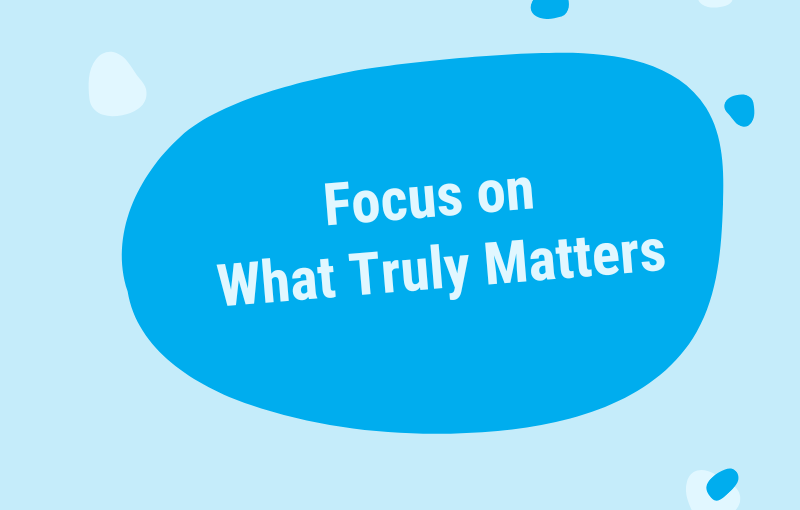Intentional Living in Retirement: Choosing What Truly Matters
The transition into retirement offers a unique opportunity to redefine our values and priorities.
We can decide who we want to be in this new stage of our life, how we want to show up, and where to focus our care and attention.
There’s no shortage of things that might draw our concern. We notice countless areas in ourselves, our lives, and the world around us that we’d like to improve, change, or act on.
However, we must recognize our limits. Our time, energy, and resources are finite, and attempting to care about everything can lead to disappointment, exhaustion, and even burnout.
Instead, retirement offers a chance to thoughtfully limit what we care about, focusing on what aligns most with our values and goals.
Consider this question: What am I no longer willing to care about?
This simple exercise and a real-life example will guide you in redefining your priorities.
#1 – Make a list of all areas of your life.
Example: Relationships, work, home, fitness and health, finances, personal interests and hobbies, etc.
#2 – Choose the area you want to focus on right now.
Example: My relationships.
#3 – Pick the one segment of your focus area you care about most.
Example: My relationship with my mother.
#4 – List all the things you care about regarding that thing.
Example: What I care about regarding my relationship with my mother:
-
- a) She says she is feeling lonely. Should I visit her more often?
- b) I wish she had a closer relationship with Aunt Mary.
- c) I am worried about her health. I think she should eat healthier and drink more water.
- d) I wonder what she is thinking about our recently bought house.
- e) She is always so impatient with the waiters when I take her out for lunch.
- f) She wants me to call her daily, which stresses me out.
#5 – Go through your list again. Can you discover specific patterns? Categories of things you care about?
Example: It seems I am thinking a lot about what she might think of me and what she expects of me. And I am worried about her well-being, and in some regards, I am quite judgmental of her.
#6 – Deliberately choose the things you no longer want to care about.
Example: I am no longer willing to care about what she thinks of me (d, f). I am no longer willing to care about what (I thought) she should or shouldn’t do. (b, e)
#7 – Cross these things out on your list. Promise yourself to cross them out in your mind, too.
Example:
-
- a) She says she is feeling lonely. Should I visit her more often?
- b) wish she had a closer relationship with Aunt Mary.
- c) I am worried about her health. I think she should eat healthier and drink more water.
- d) I wonder what she is thinking about our recently bought house.
- e) She is always so impatient with the waiters when I take her out for dinner.
- f) She wants me to call her daily, which stresses me out.
#8 – Now, look at what remains on your list. These are the things you want to care about. How do you want to do that?
Are you taking care of them in the best possible way already? Is there any room for improvement? Write down what you want to change.
Example:
-
- a) I care about her well-being. And although I know that I’m not able to take away her feelings of loneliness, I decide now to visit her twice instead of once each week.
- c) I accept that I can’t make her eat healthier or drink more. However, I’ll ensure she always has healthy snacks and enough water in her kitchen.
#9 – Finally, based on the decisions made in #8, plan the next action step. And take it.
Example:
-
- I will visit my mother tomorrow, and I will bring her some healthy snacks.
- Whenever I notice that I drift back to my old caring habits, I will remind myself of the only two things I want to care about in my relationship with my mother.

